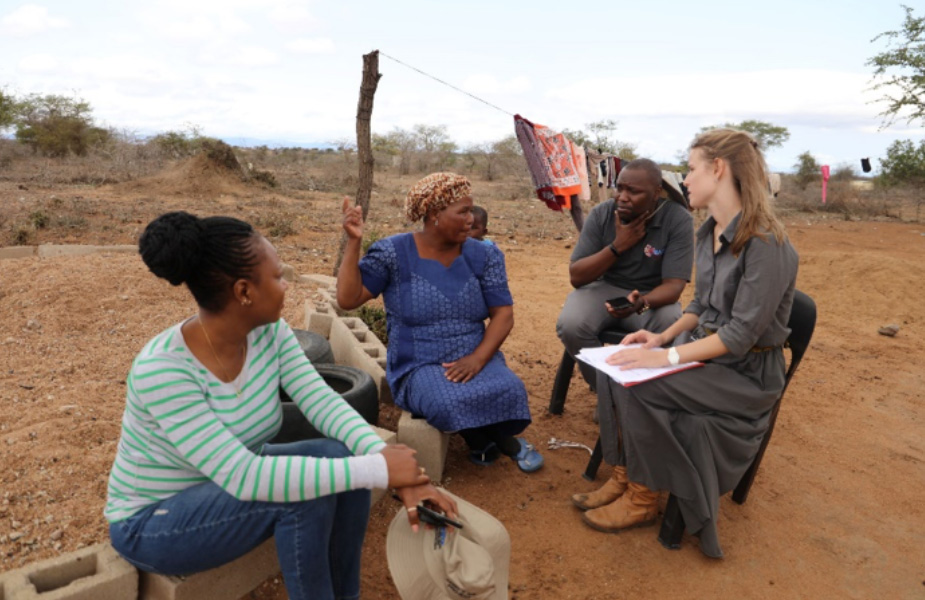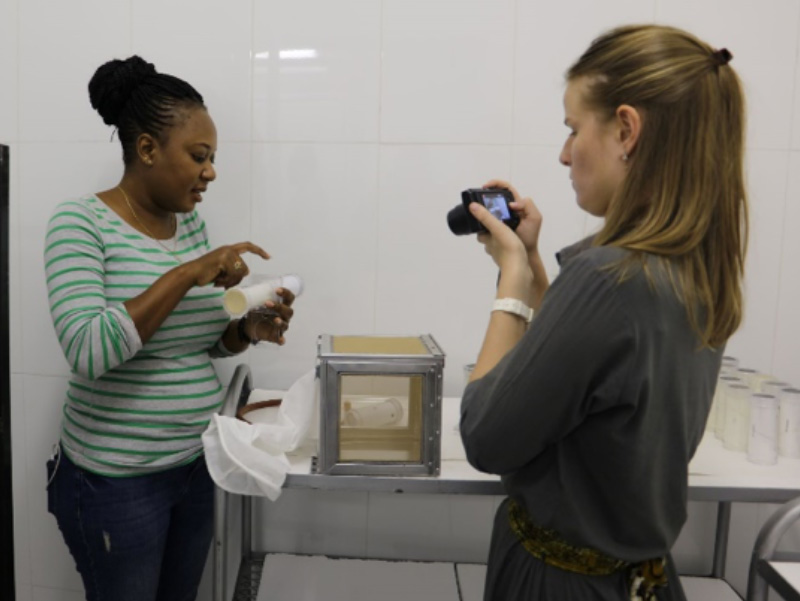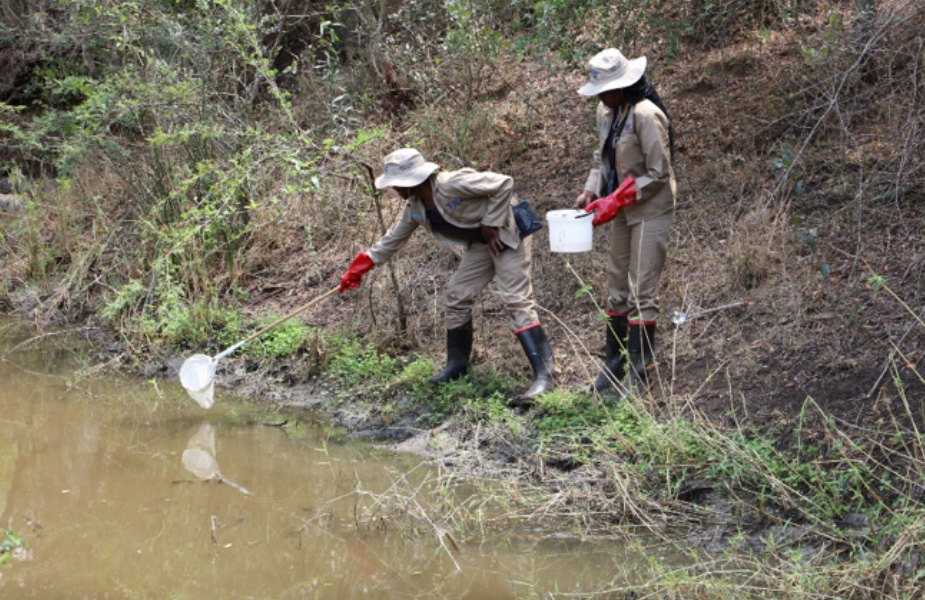The AFRO II project evaluating the feasibility and impact of community-based winter-larviciding on malaria transmission in three southern African countries (Botswana, Namibia and the Kingdom of Eswatini), hosted UNEP communication mission to the Kingdom of Eswatini. The project supports the implementation of the UNEP roadmap for development of alternatives to DDT (UNEP/POPS/COP.7/INF/7) endorsed by the seventh meeting of the Conference of the Parties (COP7) to the Stockholm Convention in May 2015.
UNEP representative, Ms Irene Galan (Associate Program Manager) made a three day visit to observe the ongoing project activities in the country. Her visit was hosted by AFRO II Eswatini National Project Coordinator Mr. Makhoselive Dlamini, Head of Vector Control at the National Malaria Program (NMP) Ms. Zulisile Zulu and ICIPE Coordinator for Afro II Project in the Kingdom of Eswatini, Dr. Theresia Nkya.
The UNEP mission visited project study communities, where they observed ongoing project activities and also conducted interviews with various members of the community, traditional leaders and doctors from local health facilities. The mission witnessed demonstration of project activities such as larvicide application around settled areas as well as larval mapping and surveillance. UNEP also had the unique opportunity to meet and interview key officials in the National Malaria Control Programme (NMCP) as well as meet the World Health Organization Representative to the Kingdom of Eswatini.
ICIPE’s strong role as well as the institution’s relationship with the country’s NMCP and WHO office was appreciated by UNEP and highlighted as a positive impact for the project success in the country. The mission will be documented by UNEP in a news article and small video documentary and shared with the Kingdom of Eswatini, WHO-AFRO, ICIPE as well as being made accessible to the public at large via different communication platforms.




